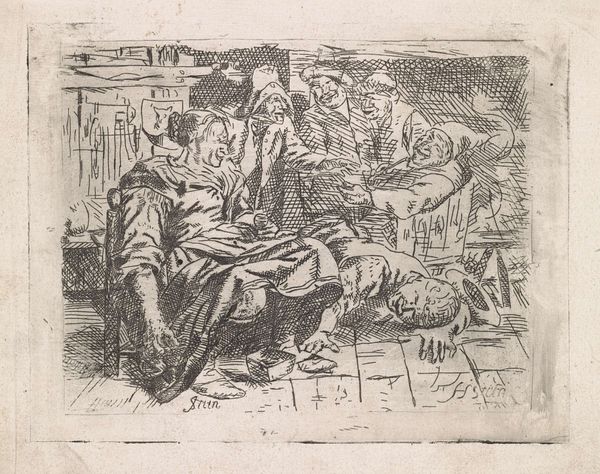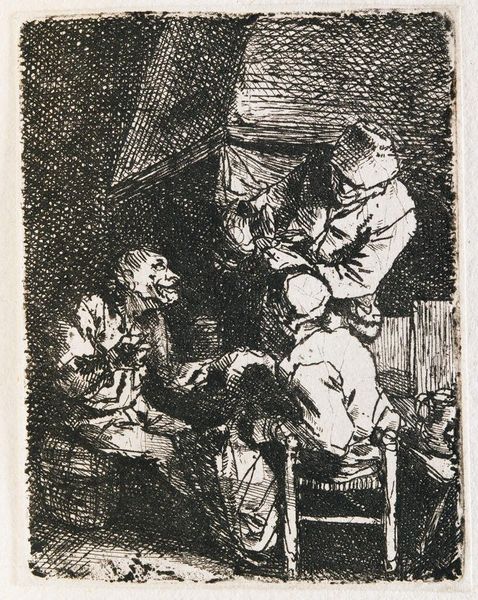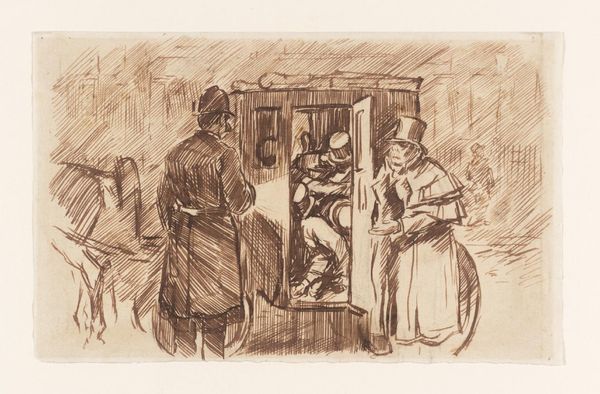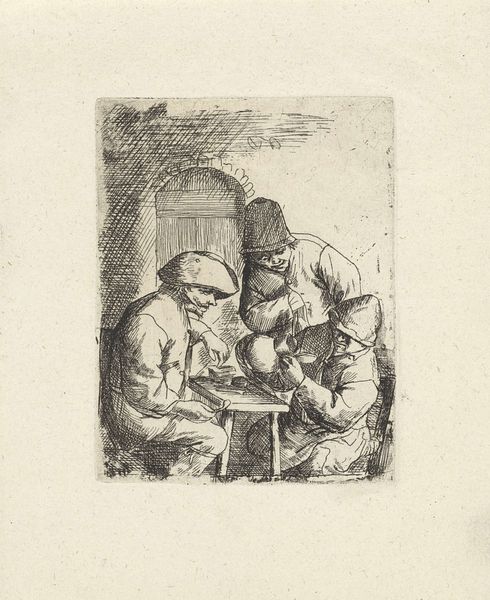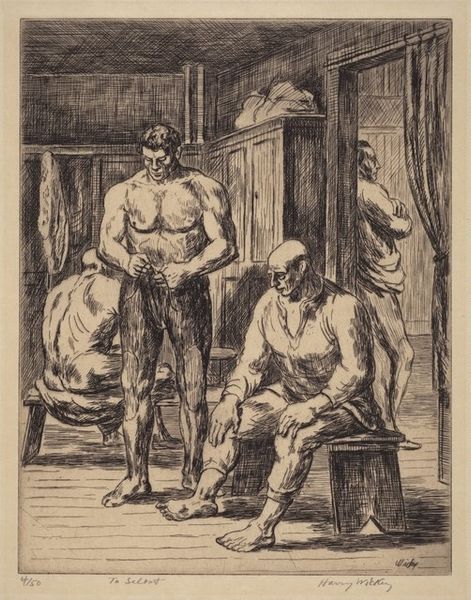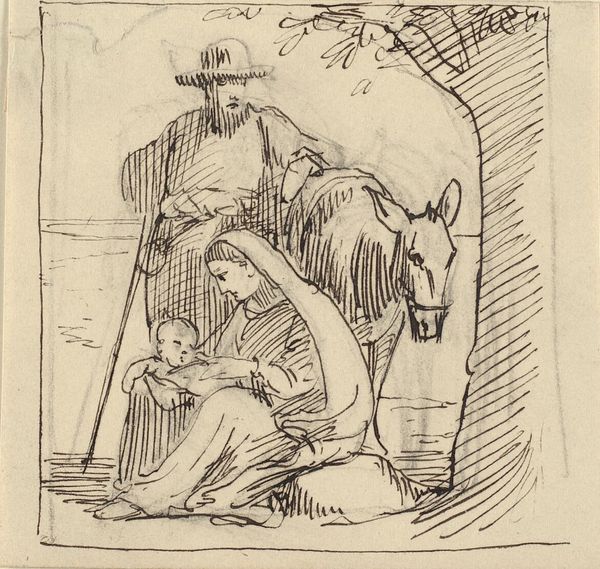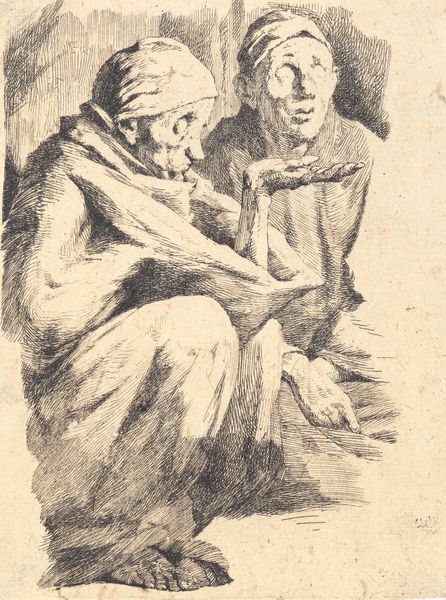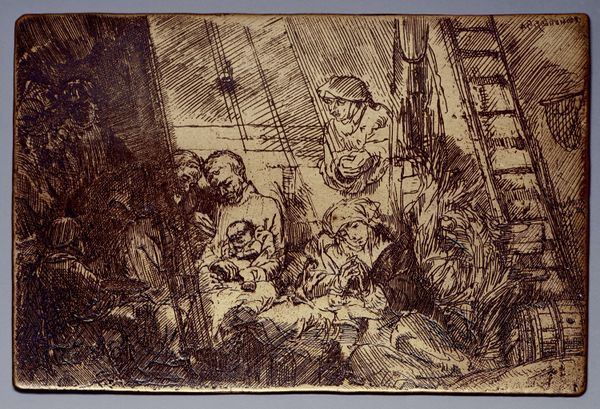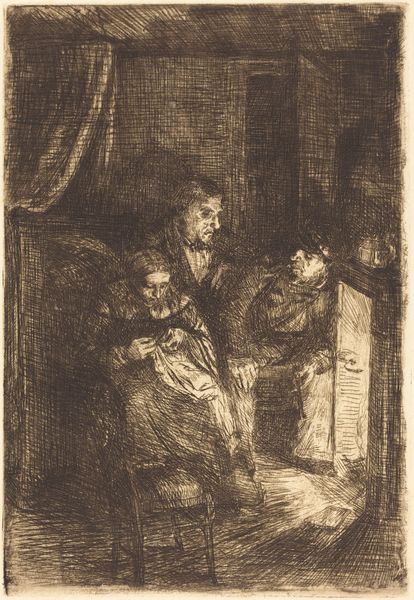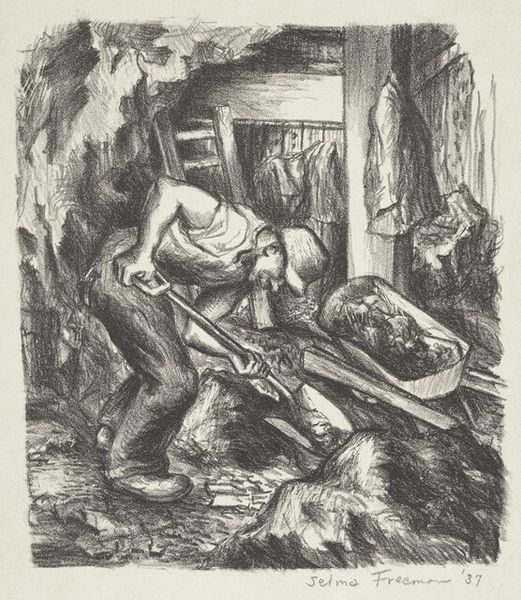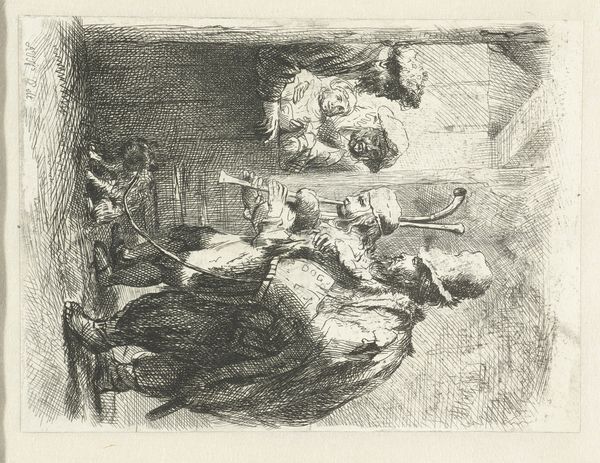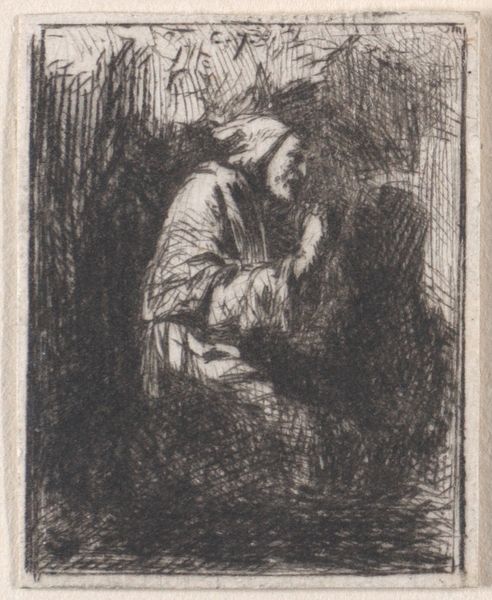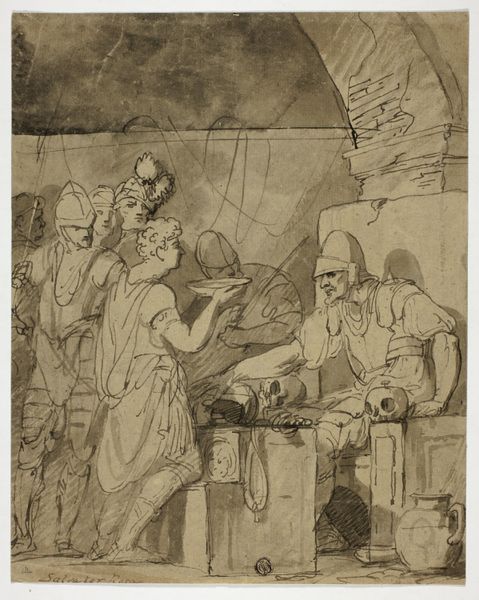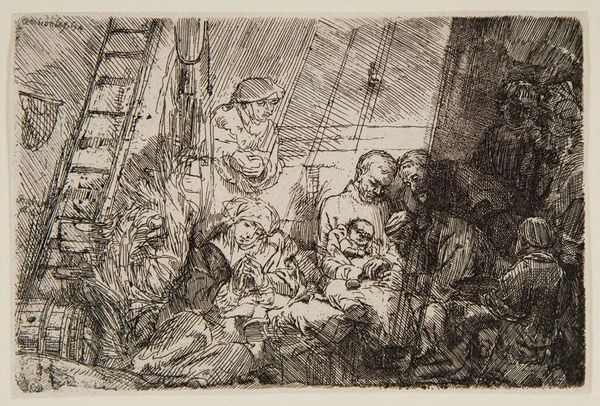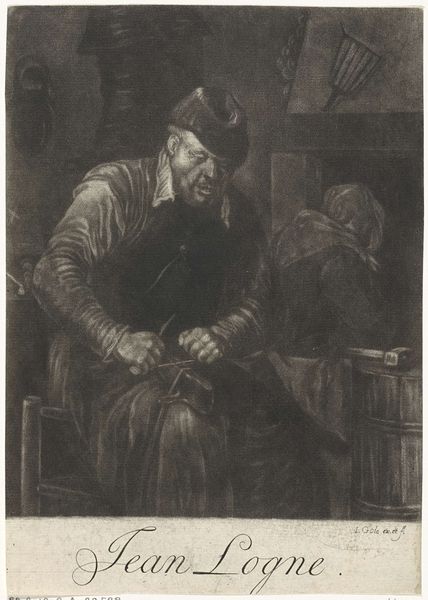
drawing, print, ink
#
portrait
#
drawing
#
ink drawing
#
narrative-art
# print
#
pen sketch
#
pencil sketch
#
figuration
#
ink
#
expressionism
#
line
Dimensions: overall: 41 x 29.2 cm (16 1/8 x 11 1/2 in.)
Copyright: National Gallery of Art: CC0 1.0
Editor: Here we have Oskar Kokoschka’s “Job and the Rubber Man,” created around 1916 or 1917 using ink. The frantic lines and distorted figures create an unsettling mood. What do you see in this piece? Curator: The scene pulsates with Kokoschka's Expressionist style. Look how he employs frenzied linework not merely to depict, but to evoke raw emotionality. We must ask: Who *is* this Rubber Man, and why Job? Editor: That's what's so puzzling. The biblical Job is the epitome of suffering and endurance. But the Rubber Man? I don't get the connection. Curator: Kokoschka likely isn’t offering a literal illustration. Instead, consider these figures as symbolic personifications. Is the Rubber Man perhaps an embodiment of societal pressures, bending and contorting Job’s fate? Does this distortion act as metaphor of emotional pliability to life’s harsh circumstances? Editor: So, it's less about a specific narrative, and more about the feelings that the characters trigger? Curator: Exactly! Kokoschka distills Job’s story down to its psychological essence. The chaotic lines around them suggest a world in turmoil. But the bandaged head of Job seems to imply he still soldiers on. Kokoschka invites us to see the story as part of a deeper commentary about enduring traumatic historical forces of early 20th century European existence. Editor: The title seemed so odd at first, but now, thinking about these archetypes of struggle, makes the drawing more powerful. Curator: Indeed. Art is, at its best, the conscious attempt to find continuities with the symbolic past. Editor: Well, I’ll be chewing on that for quite a while. Thank you!
Comments
No comments
Be the first to comment and join the conversation on the ultimate creative platform.
